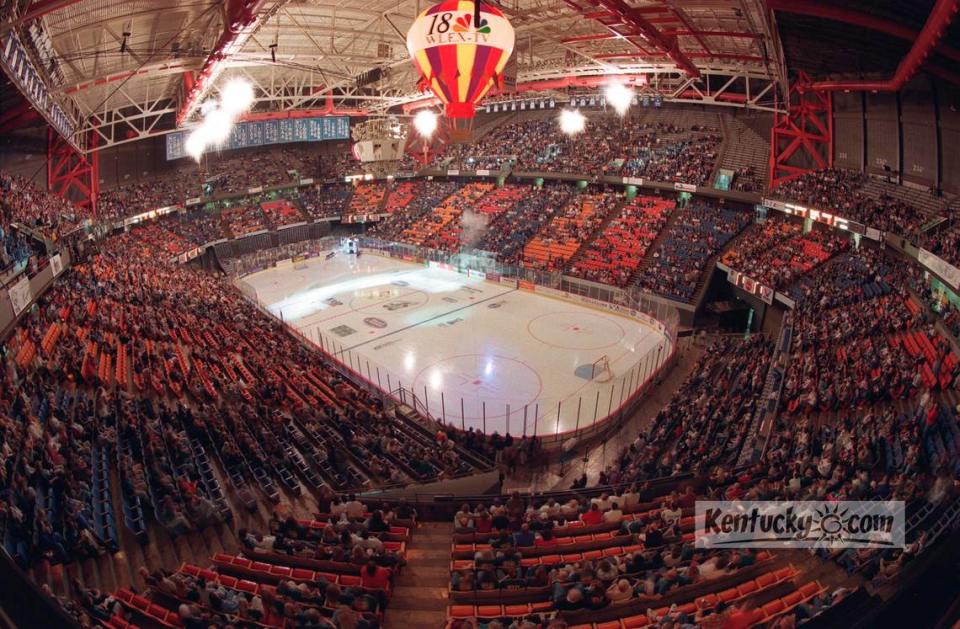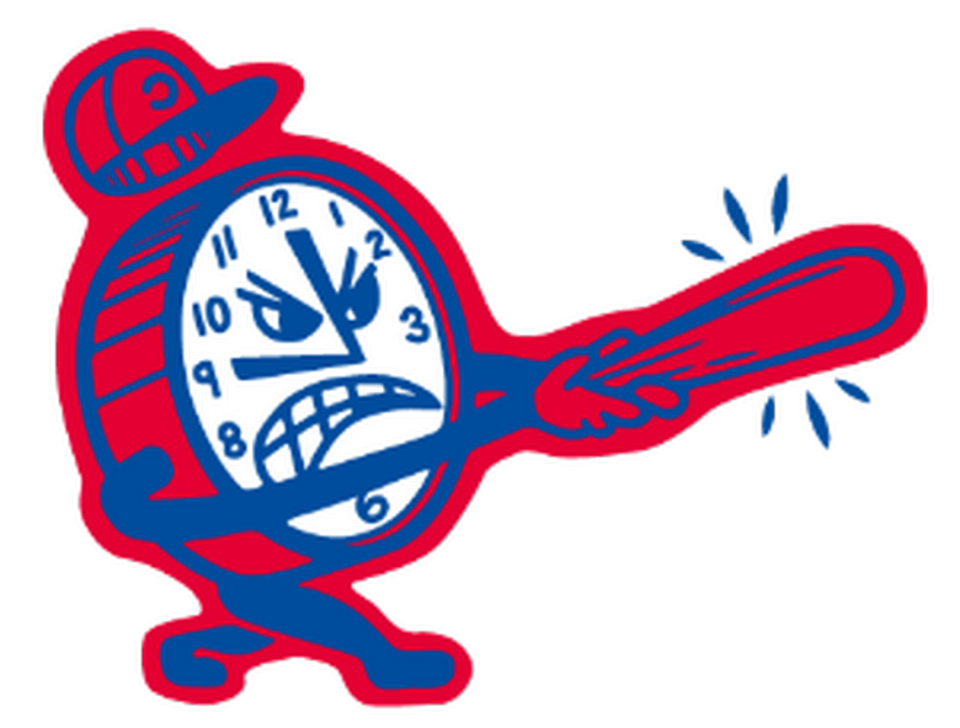A timeline of professional sports in Lexington over the past five decades
A timeline of some major moments in the history of professional sports in Lexington since 1980:
▪ 1980: Ted Stepien, regarded as one of the worst owners in American professional sports history due to an ill-fated stint as owner of the NBA’s Cleveland Cavaliers (1980-83), places a men’s pro slow-pitch softball franchise in Lexington. The team will play in the American Professional Slo-Pitch League.
▪ 1980: Stepien’s Lexington Stallions go 30-32 and finish in third place in the Western Division in their one season of play in the APSPL.
▪ 1992: Dennis Bastien, owner of the minor-league baseball Charleston (W.Va.) Wheelers, and former MLB Commissioner Bowie Kuhn meet with Kentucky Gov. Brereton Jones and Lexington Mayor Scotty Baesler to advocate for a plan that would move the Wheelers, a Cincinnati Reds Class A team, to Lexington. Baesler tells the two men there will be no public funds made available for the effort.
▪ 1995: The American Hockey League, one step below the NHL, awards an expansion franchise to Lexington with the idea of playing in Rupp Arena.
▪ 1995: Walter Bush and Ron DeGregorio, owners of the new Lexington pro hockey franchise, announce that the team will be known as the Kentucky Thoroughblades.
▪ 1996: Lexington loses out to Erie, Pa., and Springfield, Mass., as a site for one of two Double-A baseball expansion teams being awarded by the National Association of Professional Baseball Leagues.
▪ 1996-97: In their first season of play, the Kentucky Thoroughblades go 36-35-9 and finish third in the AHL Mid-Atlantic Division. The team draws an average of 7,608 fans a game to Rupp Arena.
▪ 1997-98. Even though their record slips to 29-39-9 in their second season, the Kentucky Thoroughblades see their average home attendance increase to 7,847 fans a contest, second in the AHL.

▪ 1999: Alan Stein, a Central Kentucky businessman and president of the Lexington Professional Baseball Co., announces he has a minor-league team, private investors and a stadium site lined up that will finally lead to minor-league baseball coming to Lexington. Other than saying the team would play in the Class A South Atlantic League, Stein reveals no other details.
▪ 1999: A weed-covered lot next to Northland Shopping Center off of North Broadway will be the site for a privately financed ballpark, Alan Stein announces. Stein says the goal is to have a minor-league baseball team playing in Lexington for the 2001 baseball season. Stein acknowledges that his ownership group still needs to raise an additional $3-4 million of what he says will be a total figure of some $17 million needed to both buy a team and build a ballpark.
▪ 2000: The Kentucky Fillies, a women’s professional soccer expansion team, begins what will prove a three-year run in Lexington. The franchise is a member of the second division of the W-League, a 36-team grouping within the United Soccer League. The initial home opener, against the Cincinnati Ladyhawks, is played at Lexington Catholic High School.
▪ 2000: A date for the ground-breaking to build the new minor-league baseball stadium is announced. The Houston Astros are revealed as the major-league affiliate for Lexington’s coming Class A team.
▪ 2000: At a ceremony in downtown Lexington, an estimated 5,000 people watch as it is revealed that the city’s new minor-league baseball team will be known as the Lexington Legends. The other three finalists to be the team’s nickname were the Horse Flies, Wildbats and Black Diamonds.
▪ 2000: The Legends unveil their new mascot, a muscular ballplayer with an oversized handlebar mustache named “Big L.”

▪ 2001: On April 10, the Lexington Legends defeat the Hagerstown Suns 15-1 before an Applebee’s Park crowd of 8,037. It is the first home game in Lexington for a team in affiliated, minor-league baseball since the 1954 Lexington Colts of the Class C Mountain League.
▪ 2001: Two days after the Legends debut, the Kentucky Thoroughblades draw only 1,724 fans to see a playoff loss to the Hershey Bears at Rupp Arena. It turns out to be the franchise’s final game in Lexington. With average attendance having declined to 4,461 a game by the team’s fifth season, ownership decides they can no longer afford to pay rent for the use of Rupp Arena.

▪ 2001: The “T-Blades” franchise will move to Cleveland (2001-2005), then to Worcester, Mass., (2006-2015) and has played since 2016 in California as the San Jose Barracudas.
▪ 2001: The terrorist attacks of Sept. 11 force a cancellation of the South Atlantic League championship with the Lexington Legends leading the best-of-five series vs. the Asheville (N.C.) Tourists 2-0. Both teams are named league co-champions.
▪ 2002: Owner Jean Gagnon gets approval from the East Coast Hockey League, essentially the Double-A of minor league hockey, to move the Macon (Ga.) Whoopee franchise to Lexington and play at Rupp Arena. The new Lexington Men o’ War will play here only one season, going 34-31-7 on the ice while averaging 2,368 fans a game at the turnstiles.
▪ 2003: Lexington plays host to the South Atlantic League All-Star Game. A crowd of 8,122 sees the South beat the North 3-2. SAL President John Moss tells the Herald-Leader that Lexington has become one of the league’s “jewels.”
▪ 2003: The National Indoor Football League grants Lexington an expansion franchise. Playing their debut season at Rupp Arena, the Lexington Horsemen go 9-6 and average 7,929 fans a game.
▪ 2004: In year two, the Lexington Horsemen go 10-4 and win the NIFL championship with a 59-38 victory over the Sioux Falls (S.D.) Storm in Indoor Bowl IV.
▪ 2006: Major League Baseball star Roger Clemens makes a “rehab start” with the Lexington Legends after signing as a free agent with the Houston Astros. An overflow crowd of 9,222 floods Applebee’s Park to see “The Rocket” pitch in Lexington. Legends third baseman Koby Clemens, Roger’s son, hits a run-scoring double in support of his dad — who gives up three hits and a run in three innings in a 7-4 Lexington win over the Lake County (Ohio) Captains.

▪ 2009: The Bluegrass Stallions, a men’s professional basketball team competing in the American Basketball Association (not to be confused with the ABA of the 1960s and ‘70s), begins playing at the Alltech Arena at the Kentucky Horse Park. Over its two-year history, the team will switch leagues, joining the Premier Basketball League for season two, and end up moving home games to Corbin High School, Lexington Christian Academy and Georgetown College before going defunct.
▪ 2009: After Lexington’s indoor football team plays its final two seasons (9-7 in 2008, 10-6 in 2009) in af2 (the second division of the Arena Football League) as the Kentucky Horsemen, the team goes out of business due to economic issues. Part of the problem was the cost of renting a venue as large as Rupp Arena. The Horsemen initially pay $4,500 to $6,000 per game to rent Rupp. However, in later seasons, that figure rises to $9,500, according to figures obtained by the Herald-Leader in 2019.

▪ 2013: After being associated with the Houston Astros throughout their existence, the Lexington Legends switch their affiliation to the Kansas City Royals.
▪ 2018: Managed by Scott Thorman, the Lexington Legends win the South Atlantic League championship with a 3-1 series victory over the Lakewood (N.J.) BlueClaws.
▪ 2019: Managed by Brooks Conrad, the Lexington Legends win the South Atlantic League championship with a 3-1 series victory over the Hickory (N.C.) Crawdads.
▪ 2020: As part of a contraction process that sees Major League Baseball reduce by 40 teams the number of minor-league franchises it supports, the Lexington Legends lose their affiliation with the Kansas City Royals and their place in the South Atlantic League.
▪ 2021: The Lexington Legends join the Atlantic League of Professional Baseball, an independent minor league.
▪ 2021: Managed by P.J. Phillips, the Lexington Legends defeat the Long Island (N.Y.) Ducks 3-1 to win the ALPB Championship Series.
▪ 2021: Team owner William J. Shively announces that USL League One has granted a men’s professional soccer expansion franchise to Lexington. USL League One is, essentially, the Double-A of men’s professional soccer in the United States. It is announced that the new team is slated to begin play in 2023.
▪ 2022: In the summer of 2022, Lexington is home to two Atlantic League of Professional Baseball teams. The Lexington Legends and the Kentucky Wild Health Genomes both share the Lexington ballpark, now known as Wild Health Field. The Wild Health Genomes are a “filler team,” originated to ensure the ALPB has an even number of teams, 10, for scheduling purposes. The Legends go 56-76, the Wild Health Genomes finish 67-65. After the season, the Wild Health Genomes “franchise” is purchased by a Maryland-based sports entertainment company.
▪ 2022: The Lexington Legends franchise and Wild Health Field are sold by the existing, owners Stands LLC and CEO Andy Shea, to Nathan and Keri Lyons of Nashville.
▪ 2023: The new Lexington professional soccer club reveals its official name, the Lexington Sporting Club, or Lexington SC. The club also unveils its crest, which features a vibrant green stylized horse figure set against a dark green background.

▪ 2023: The Lexington Urban County Planning Commission votes unanimously to approve a zone change so Lexington Sporting Club can build a 6,500-seat soccer stadium plus a training and medical complex at 5380 and 5354 Athens Boonesboro Road.
▪ 2023: The new ownership of the Lexington Legends announces the franchise is undergoing a name change. Starting with the coming season, the team will be known as the Lexington Counter Clocks.

▪ 2023: For 2023, the Lexington Sports Club announces it will play its home matches at Georgetown’s Toyota Stadium. Its initial home season commences April 8 at 7 p.m. with a match against Forward Madison.
Where to watch, how to follow Lexington Sporting Club during inaugural USL League One season
Pro soccer in Central Kentucky ‘a win for everybody’ if owner’s long-term vision kicks in
What will define a successful first year for the Lexington Sporting Club?
Meet every player on Lexington Sporting Club’s inaugural roster for USL League One season
Who will Lexington SC play this season? What to know about other USL League One teams.
Q and A: Sam Stockley discusses present and future aspirations for Lexington Sporting Club
Sam Stockley: Lexington Sporting Club aiming to win on field and in community
‘Big on doing things right.’ What will game-day experience be like for Lexington SC?
‘We’re going to embrace it.’ Lexington Sporting Club plays Louisville City for first time.
Lexington Sporting Club reveals road jerseys ahead of debut season in USL League One
Lexington Sporting Club takes the pitch for its first USL League One match. How did it go?


